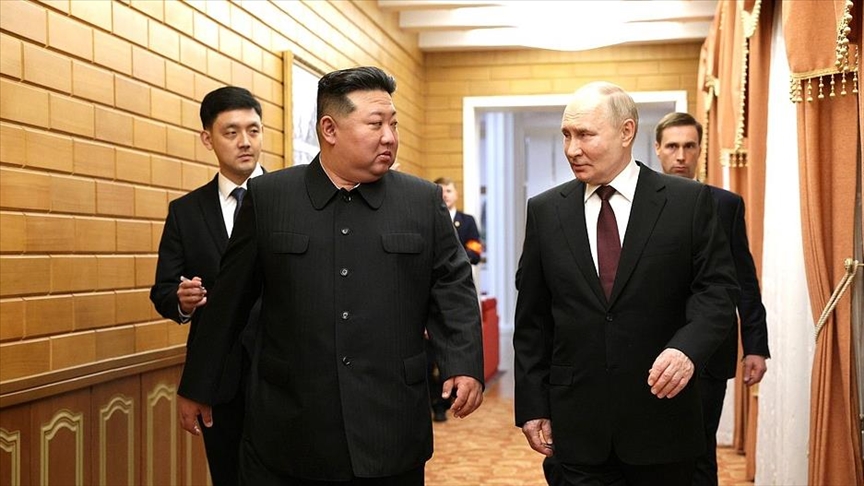MOSCOW
Russia and North Korea on Wednesday signed a Comprehensive Strategic Partnership Agreement, which will serve as the foundation for future bilateral cooperation, according to the Kremlin.
Russian President Vladimir Putin and Chairman of the State Affairs of the Democratic People’s Republic of Korea (DPRK) Kim Jong-un signed the document following several rounds of talks, the Kremlin said in a statement.
“Last year, as a result of your visit to Russia, we have made significant progress in building our interstate relations. And today, a new fundamental document has been prepared, which will form the basis of our relations for the long term,” the Russian president said of the agreement.
Putin recalled that the Russian-Korean friendship was formed in the face of hardship, particularly in 1945, when Soviet soldiers fought “shoulder to shoulder” with Korean patriots to liberate Korea from Japanese invaders.
During the Korean War of 1950-1953, Soviet pilots flew tens of thousands of combat missions to support North Korean soldiers.
“As far as I know, today’s program includes laying a wreath at the Korea Liberation Monument. Our predecessors provided a solid foundation for the development of our relations today,” he said.
Earlier on Monday, Russian presidential aide Yury Ushakov said the new document will replace several previous agreements, including the Treaty of Friendship and Mutual Assistance of 1961, the Treaty on Friendship and Good Neighborliness in Cooperation of 2000, and the Moscow and Pyongyang declarations of 2000 and 2001.
According to Ushakov, the new agreement will reflect the significant changes in the geopolitical landscape and bilateral relations between Russia and North Korea.
Ushakov emphasized that the document will comply with all the fundamental principles of international law, will not be of any confrontational nature and will not be directed against any countries, but will be aimed at ensuring greater stability in the Northeast Asia region.

